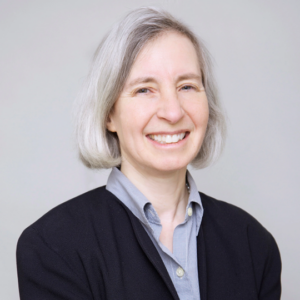Martha L. Minow has taught at Harvard Law School since 1981, where her courses include civil procedure, constitutional law, family law, international criminal justice, jurisprudence, law and education, nonprofit organizations, and the public law workshop. An expert in human rights and advocacy for members of racial and religious minorities and for women, children, and persons with disabilities, she also writes and teaches about privatization, military justice, and ethnic and religious conflict.
Besides her many scholarly articles published in journals of law, history, and philosophy, her books include When Should Law Forgive? (2019); The First Global Prosecutor: Promise and Constraints (co-edited, 2015); In Brown’s Wake: Legacies of America’s Constitutional Landmark (2010); Government by Contract (co-edited, 2009); Just Schools: Pursuing Equality in Societies of Difference (co-edited, 2008); Breaking the Cycles of Hatred: Memory, Law and Repair (edited by Nancy Rosenblum with commentary by other authors, 2003); Partners, Not Rivals: Privatization and the Public Good (2002); Engaging Cultural Differences: The Multicultural Challenge in Liberal Democracies (co-edited 2002); Between Vengeance and Forgiveness: Facing History After Genocide and Mass Violence (1998); Not Only for Myself: Identity, Politics and Law (1997); Law Stories (co-edited 1996); Narrative, Violence and the Law: The Essays of Robert M. Cover (co-edited 1992); and Making All the Difference: Inclusion, Exclusion, and American Law (1990). She is the co-editor of two law school casebooks, Civil Procedure: Doctrine, Practice and Context (3rd ed. 2008) and Women and the Law (4th ed. 2007), and a reader, Family Matters: Readings in Family Lives and the Law (1993).
Minow is the Vice-Chair of the Legal Services Corporation, a bipartisan, government-sponsored organization that provides civil legal assistance to low-income Americans. She has served on the Center for Strategic and International Studies Commission on Countering Violent Extremism and on the Independent International Commission Kosovo. She helped to launch Imagine Co-existence, a program of the U.N. High Commissioner for Refugees, to promote peaceful development in post-conflict societies. Her five-year partnership with the federal Department of Education and the Center for Applied Special Technology worked to increase access to the curriculum for students with disabilities and resulted in both legislative initiatives and a voluntary national standard opening access to curricular materials for individuals with disabilities. Her honors include the Sargent Shriver Equal Justice Award (2016), the Joseph B. and Toby Gittler Prize, Brandeis University (2016); nine honorary degrees (in law, education, and humane letters) from schools in three countries; the Gold Medal for Outstanding Contribution to Public Discourse, awarded by the College Historical Society of Trinity College, Dublin, in recognition of efforts to promote discourse and intellectualism on a world stage; the Holocaust Center Award; and the Sacks-Freund Teaching Award, awarded by the Harvard Law School graduating class.
Minow is currently a member of the boards of the Advantage Testing Foundation, the MacArthur Foundation, the Russell Sage Foundation, the SCE Foundation, and WGBH; serves on the Council for the American Bar Association Center for Innovation; and is a member of the advisory boards for the new College of Computing and the Media Lab at the Massachusetts Institute of Technology. Minow served as the inaugural chair of the Deans Steering Committee of the Association of American Law Schools and as a member of the American Bar Association Diversity and Inclusion 360 Commission. She previously chaired the board of directors for the Revson Foundation (New York) and served on the boards of the Legal Services Corporation, the bi-partisan, government-sponsored organization that provides civil legal assistance to low-income Americans; the American Bar Foundation; the CBS Corporation; the Bazelon Center for Mental Health Law; the Covenant Foundation; the Iranian Human Rights Documentation Center; and Facing History and Ourselves, where she chaired the Scholars’ Board. A fellow of the American Academy of Arts & Sciences since 1992, Minow has also been a senior fellow of Harvard’s Society of Fellows, a member of Harvard University Press Board of Syndics, a senior fellow and acting director of what is now Harvard’s Safra Foundation Center on Ethics, a fellow of the American Bar Foundation and a Fellow of the American Philosophical Society. She has delivered more than 70 named or endowed lectures and keynote addresses, including the 2016 George W. Gay Lecture at Harvard Medical School’s Center for Bioethics and the 2017 Alexander Meickeljohn Lecture on media at the First Amendment at Brown University.
Minow served as Dean of Harvard Law School between 2009 and 2017, as the inaugural Morgan and Helen Chu Dean and Professor. Minow co-chaired the Law School’s curricular reform committee from 2003 to 2006, an effort that led to significant innovation in the first-year curriculum as well as new programs of study for second- and third-year J.D. students.
After completing her undergraduate studies at the University of Michigan, Minow received a master’s degree in education from Harvard and her law degree from Yale. She clerked for Judge David Bazelon of the United States Court of Appeals for the D.C. Circuit and then for Justice Thurgood Marshall of the Supreme Court of the United States. She joined the Harvard Law faculty as an assistant professor in 1981, was promoted to professor in 1986, was named the William Henry Bloomberg Professor of Law in 2003, became the Jeremiah Smith Jr., Professor of Law in 2005, and after her service as dean, became the Carter Professor of General Jurisprudence in 2017. She is also a lecturer in the Harvard Graduate School of Education and Distinguished Service Professor at Harvard University.

